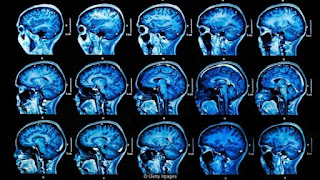Finding a New Path with Dementia
Dementia is an umbrella term for a range of neurological
disorders, with symptoms such as a loss of memory skills and thinking abilities
and changes in behavior that interfere with a person’s everyday functioning.
There are many different types of dementia, including Alzheimer’s disease,
vascular dementia and Lewy-body dementia. Hearing the word dementia likely
conjures up images of people in the final stages, as sufferers curled up on a
bed, unable to speak or to recognize loved ones. There is no cure yet, although
research continues. Nearly 6 million Americans live with dementia, and
diagnoses are expected to spike as the population ages.
But as the first wave of baby boomers begins to be affected
by dementia, perceptions of the disease are gradually beginning to change. Some
with early symptoms are speaking out, hoping to counter dementia’s stigma and
to pursue a higher quality of life as they confront the disease. Advocates are
pushing for more life-enhancing kinds of care, such as tools and resources for
people recently diagnosed to help make the best of their remaining strengths.
It doesn’t mean that living with dementia can suddenly
become easier, or that there’s a simple fix to the challenges a diagnosis
presents. But the goal is to flip the script and stop defining people with
dementia only as sufferers who are dying from it. “This concept is just taking
off,” says Katie Maslow, a visiting scholar at the Gerontological Society of
America and an expert in improving dementia care and supporting caregivers.
“It’s so different from where we’ve been. We’re talking about living well with
dementia, as opposed to focusing only on all the bad things that are about to
happen.”




Comments
Post a Comment